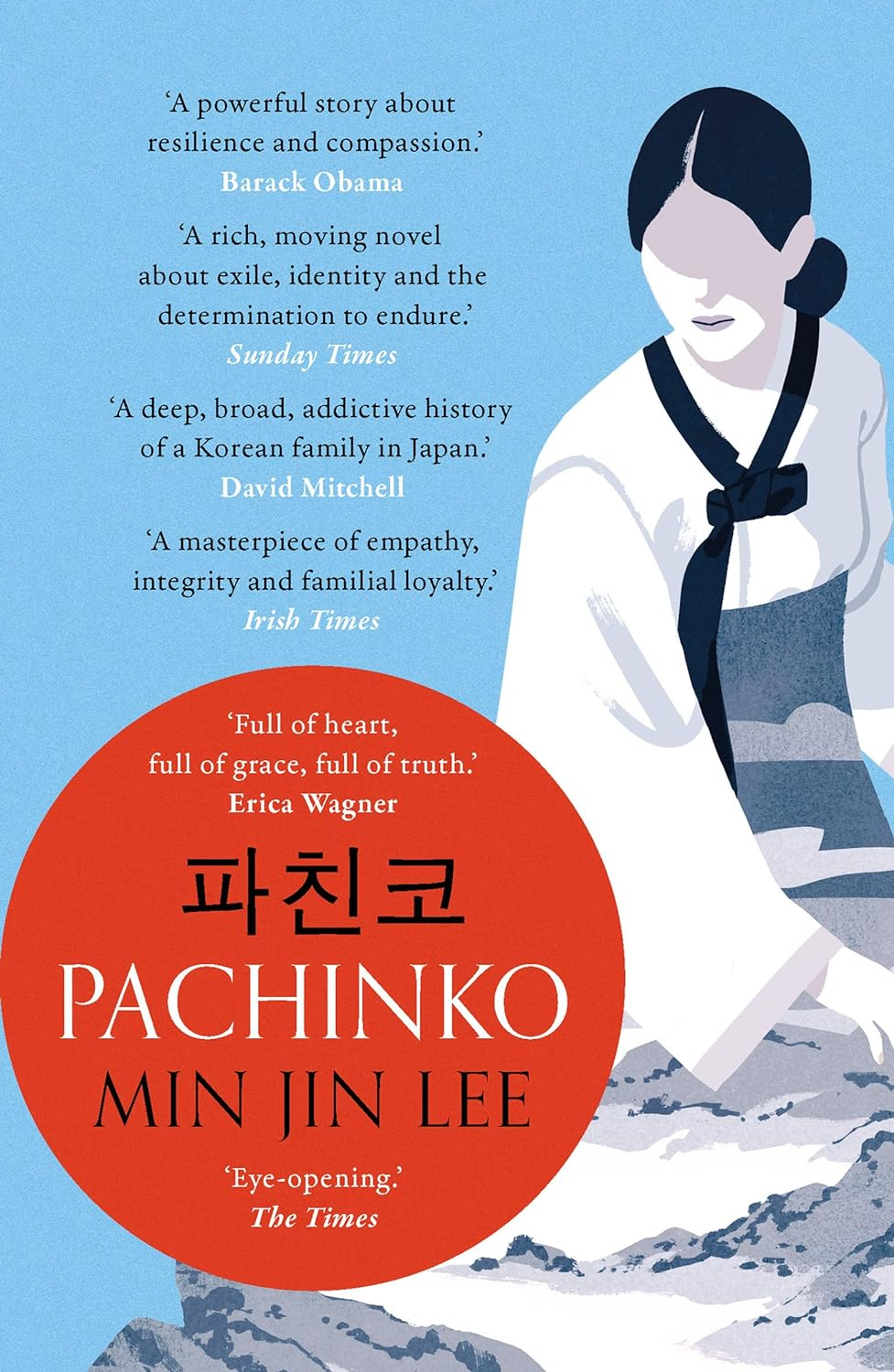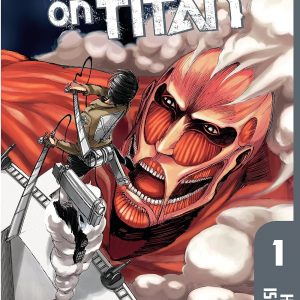Product description
Review
Gripping… a stunning achievement, full of heart, full of grace, full of truth’ — Erica Wagner
A deep, broad, addictive history of a Korean family in Japan enduring and prospering through the 20th century — David Mitchell, Guardian
A rich, moving novel about exile, identity and the determination to endure ―
Sunday TimesVivid and immersive,
Pachinko is a rich tribute to a people that history seems intent on erasing ― GuardianThe work of a writer in complete control of her characters and her story and with an intense awareness of the importance of her heritage… Told with such flair and linguistic dexterity that I found myself unable to put it down. Every year, there are a few standout novels that survive long past the hype has died down and the hyperbolic compliments from friends scattered across the dust jacket have been forgotten.
Pachinko, a masterpiece of empathy, integrity and familial loyalty, will be one of those novels’ — John Boyne, Irish TimesWe never feel history being spoon-fed to us: it is wholly absorbed into character and story, which is no mean feat for a novel covering almost a century of history ―
Financial TimesAn epic, multi-generational saga ―
Mail on Sunday, Best of 2017A great book, a passionate story, a novel of magisterial sweep. It’s also fiendishly readable – the real deal. An instant classic, a quick page-turner, and probably the best book of the year — Darin Strauss, New York Times-bestselling author of Chang and Eng.
A long, complex book, it wears its research lightly, and is a page-turner. You can sense the author’s love and understanding for all the characters, the good and the flawed ―
Irish Examiner.Remarkable… A striking introduction to lives, to a world, [the reader] may never have seen, or even thought to look at. In our increasingly fractured and divisive times, there can be no higher purpose for literature: all in the pages of a book that, once you’ve started, you’ll simply be unable to put down’ ―
Harper’s BazaarElegant and soulful, both intimate and sweeping. This story of several generations of one Korean family in Japan is the story of every family whose parents sacrificed for their children, every family whose children were unable to recognize the cost, but it’s also the story of a specific cultural struggle in a riveting time and place. Min Jin Lee has written a big, beautiful book filled with characters I rooted for and cared about and remembered after I’d read the final page — Kate Christensen, award-winning author of The Great Man and Blue Plate Special
Both for those who love Korea, as well as for those who know no more than Hyundai, Samsung and kimchi, this extraordinary book will prove a revelation of joy and heartbreak. I could not stop turning the pages, and wished this most poignant of sagas would never end. Min Jin Lee displays a tenderness and wisdom ideally matched to an unforgettable tale that she relates just perfectly — Simon Winchester, author of Korea: A Walk Through the Land of Miracles
A compassionate, clear gaze at the chaotic landscape of life itself. In this haunting epic tale, no one story seems too minor to be briefly illuminated. Lee suggests that behind the facades of wildly different people lie countless private desires, hopes and miseries, if we have the patience and compassion to look and listen ―
New York Times Book ReviewLove, luck, and talent combine with cruelty and random misfortune in a deeply compelling story, with the troubles of ethnic Koreans living in Japan never far from view. An old-fashioned epic whose simple, captivating storytelling delivers both wisdom and truth ―
Kirkus[A] beautifully crafted story of love, loss determination, luck, and perseverance… Lee’s skilful development of her characters and story lines will draw readers into the work. Those who enjoy historical fiction with strong characterisations will not be disappointed as they ride along on the emotional journeys offered in the author’s latest page-turner’ ―
Library JournalAn exquisite, haunting epic… Lee’s profound novel of losses and gains explored through the social and cultural implications of pachinko-parlor owners and users is shaped by impeccable research, meticulous plotting, and empathic perception’ ―
Booklist Starred ReviewA sweeping, engrossing family saga… a poignantly told tale. Gracefully written and dotted with memorable images, evocative of the pace and time, it’s a page-turning panorama of one family’s path through suffering to prosperity in 20th-century Japan’ ―
Literary ReviewStunning…
Pachinko is about outsiders, minorities and the politically disenfranchised. But it is so much more besides. Each time the novel seems to find its locus – Japan’s colonization of Korea, World War II as experienced in East Asia, Christianity, family, love, the changing role of women – it becomes something else. It becomes even more than it was’ ― New York Times




Priyanka Roy Banerjee –
That last sentence in the blurb became one of the reasons I picked up Pachinko. That, and the other reason being – I wanted to read more about Korean immigrants in Japan after I had read Go by Kazuki Kaneshiro. The subjects are similar but the premises of these two books are vastly apart.It is pretty safe to say that I loved Min Jin Lee’s writing. Expressing your ethnicity in a beautiful narrative while being an immigrant is not an easy task but she seems like a master at it. Lee’s characterisation is impeccable in the way she built Sunja from a child to an old woman, passing through each phase of her life. She expressed each one beautifully – the anguish of brother-in-law Yoseb, the capability of holding the family together by the sister-in-law Kyunghee, the meritorious elder son Noa, the less educated but successful younger son Mozasu, the relentless but helpful mafia ex-lover
DAMINI SINGH –
Pachinko – Set in the backdrop of World War II and Japanese invasion of Korean colonies and the effect of it thereafter on the lives of the people.The book is divided in 3 parts – 1st part is the story of a young girl named Sunja born to a crippled father Hoonie. At a young age of 15 she gets pregnant by a Korean man named Koh Hansu. Holding her self respect high she declines to be his mistress and decides to keep the child on her own. Destiny however gives her a kind hearted pastor Baek Isak who decides to marry her only if she wishes and give name to her child. Life is good until Baek gets imprisoned wrongfully and is slowly beaten to death over a period of two years.2nd part – Sunja again accepts whatever life has given her and now with two sons Noa and Mozasu she ventures to sell kimchi and sweets to support her sons future. Baek is released from prison and dies shortly after. Koh Hansu comes back for his son and sunja and provides them shelter in a war torn country in the backdrop of Nagasaki bombing by the Americans. Koh Hansu pays for Noa’s education and all the while Noa is unaware of the truth that Koh Hansu a yakuza is his father.Noa realizes the truth and heart broken he confronts his mother Sunja and leaves everyone’s life and his university education and settles in Nagano.3rd part – This part is little slow when too much stress is laid on the lives of Noa and Mozasu. And some characters just disappear in thin air without any whereabouts. After 11 years Sunja and Koh Hansu are able to trace Noa and Noa realizes that he cannot change the Yakuza blood and commits suicide. Mozasu the younger brother is now rich and wants something special for his son Solomon. A future he could not have. The story ends with Sunja sitting at the grave of Baek Isak and weeping.This book is really about how hard life gets and how accepting and never giving up and working hard to change your future in the face of adversity is the only solution.My favourite line from the piece is when Baek Isak shortly before dying says to Noa – “You are brave Noa. Living every day in the presence of those who refuse to acknowledge your humanity takes great courage.”
Amazon user –
This is one of the best books I read in 2023, it was so mesmerising, the story of an immigrant family in Japan. I didn’t know there was so much happening in that part of the world.
Shivani Verma –
Set in Japan in the early 1900s, before the World War 2, historically when the Koreans were colonised by the Japanese.This book follows four generations of a Korean family which migrates to Japan and everything that follows it. There is no particular protagonist in the book and the story starts with the focus on the lives of Yangjin and Hoodie, who were boarding house keepers in Busan, Korea. They have a daughter named Sunja who falls in love with a yakuza, Koh Hansu and gets pregnant. On learning that Hansu is already married, Sunja marries Isak and moves to Osaka, Japan with him. The story keeps moving forward and focuses on the struggles, hardships and loss of the family.Pachinko is a great familial saga set in the times of war between Korea and Japan. The author, through the family’s story tries to give us a big historical context which most of us have no idea about. I felt like the book must be read by everyone because it talks about a category of people that the history deliberately wants us to forget.The book portrays the ugly side of the Japanese society and it tells us about the treatment given to different ethnic groups in Japan. Even the generations of Koreans who were born during and after the World War 2 and have lived in Japan for more than 2 decades, have got assimilated in the Japanese culture, were highly discriminated solely on the fact that were Koreans, it has portrayed the open prejudice that these people struggled with.Pachinko has lengths to talk about and it mainly focuses on the immigrants and them trying to find a home in this cruel world. It talks about the struggles of the characters with their own identity in a very hostile country and their determination to preserve and endure.Every character in the story is so compellingly written that you are invested in the story throughout. Each one of them have something or their other to teach you through their lives and struggles. The author has introduced the characters and their stories to us and has left it on us to decide and judge and interpret what we can out of it.Highly recommended, because this story needs to be heard!
Maithili –
This story will stay with you forever after you’ve read it. It speaks volumes on how Koreans were treated in Japan before and after the war. Through its female characters, who I find exceptionally strong, it conveys the internal battle they fight in addition to the external turmoils, and yet they live with simple dreams. It also speaks about homosexuality without delving too deep or for long, thus making it seem natural and not force fitted in the storyline. I’m a Min Jin Lee fan after this one. It has been such a long time since I’ve found a book that I couldn’t keep aside. My gratitude and thanks to the author and the Korean people whose stories she’s revealed to the world through this masterpiece.
Amazon Customer –
The Korea-Japan based novel, is culturally rich from the point of view of poor Koreans. However it is a saga that extends to 5 generations, which eventually got too long for me as a reader.
T.Wilson –
A book that meticulously captures the lives of a colonised Korea under Japan. As hearts would melt, the women are like folk tales of their own origin carrying legacy that establishes them both as an object of victimisation and the sculptress. Men as described are multi faceted being both savages and saviours. Ideas of extremism in the heightedness of the Second World War with the pain of each character is the most obvious juxtaposition that anyone will admire to read. Koreans life in Japan, the alienation most powerfully details identity crisis as a main theme. Settings of Korea, the most simplistic yet aesthetic markets and places like the bathing house paint native flavour and serenity to the minds of the readers. Love, agony, redemption, betrayal, disappointment, self respect, lust are intertwined and runs as emotions of revolution. Japan’s devastation and the building up as s nation state of valor is ceaselessly drawn as an art. The most richest and the proudest and the prejudice versus the simplest, humblest wages a war. A good versus a bad play but good sustains eternity. Christianity as a religion is showered ultimate attention and adds dignity and salvation to the lives of the people. Women power is dealt with perfection. A book that doesn’t manipulate but dwells itself to the deepest sorrows of colonisation and endless turmoil of the women and the men folk in a world of savagery drenched in war. Pachinko crosses line and has its hand in a upper and ruling rage throughout the novel. A book that the decades would rejoice to visualise.
Bookssnquotes –
Min Ji Lee’s Pachinko is a family saga that takes you in the footsteps of a Korean family of three generations, 8 decades from Korea to Japan beginning from 1910 to ending in 90′.There are three parts to the story. The first part follows the story of Sunja, her move from Korea to Japan after marriage, struggles of being an immigrant in a hostile country. And then later part follows the story of her sons Noah and Mozasu. Difficulties, Discrimination faced being Korean in Japan and stepping into the pachinko business. And the last part is the story of her grandson Solomon who wishes to expand their Pachinko business over the States.I thoroughly enjoyed part 1,2 but in part 3 I felt like it was a bit rushed and I didn’t like the way the main character Sunja was sidelined for the whole time and the ending story of Noah. So many characters are introduced, so many stories. The story would have been so better if the author focused on the existing characters.Sunja is the character that going to stay in my heart for a long time. Her patience, her resilience, her force of nature. And I also liked the bond between Kyung-hee and Sunja. The whole depictions of father-daughter, mother-son and sister-in-law relationships are heartwarming to read. Lee’s writing is beautiful and the book was unstoppable once started.It also gives insights into the impact of Japanese colonization of Korea, war dynamics between Korea & Japan, ill-treatment, racism faced by the Koreans, plight of immigrants & even after generations they are still considered foreigners on land. Japanese involvement in the second world war, the agony of Koreans not having their own home.A wonderful epic family saga. I highly recommend it.
Architha A –
“We cannot help but be interested in the stories of people that history puts aside so thoughtlessly”Pachinko – Japanese for ‘pinball machine’. What is this doing on the cover of a book? Make no mistake, this word plays a very important role in deciding the life events of a family and the people associated with it.It’s a multi-generational saga, involving a Korean family that moves to Japan due to unfortunate circumstances (war, of course), and their struggle, sorrows and habits of daily life make up most of the book. As with any family’s history, culture and tradition practiced leads to a series of branching courses of life, thus making the book more informative than relatable.”A woman’s lot is to suffer”; this line makes an appearance many times in the script. Everytime I came across it, I prayed for any one of the protagonists to think otherwise. She did, only it took a 100 years to do so. But really, I can’t blame the author for this. It’s what’s been imbibed in our heads ever since we were children. To the men, it’s said: Life is hard. But it’s manageable with a woman around. To the women, it’s said: A woman’s lot is to suffer. This says a lot about our culture and our ancestors in general, that they were following the wrong ideas, and the burden of reform falls upon us and the future generations.As slow as a snail and as educational as an encyclopaedia, this book can be considered an insight into East Asian culture during the 20th century in a vague and general manner. One can definitely learn more life-lessons from this book than a self help guide, and that’s the beauty of Pachinko which the author fascinatingly brought forth.
Placeholder –
PachinkoBy Min Jin LeeWritten by a Korean-American journalist, an effort to showcase the backdrop of wars and colonisation, thru a fiction.“History has failed us, but no matter.”..they had to survive & the most dreadful thing to do is to survive. The novel did its best in picturing what it takes in order to just SURVIVE, as there was nothing to being other than mere survivors.The story is written in such a way that you will hit many a juncture and you would think, the story will soon be hitting the end..but those will always belie you. It may feel like it is a streched one, but I don’t think there would have been any better way to present the notion!From the point of view of literature, this one stands out in the crowd. A perfect book for buddy-reads or book discussions. It has everything to offer, it may shake you to an extent..as you will be left wondering how cruel things can get!Well, I think the book ended a bit early..really want to know what life would be like for the characters, now.“There’s nothing worse than knowing that you’re just like everybody else.”⭐ – 4.0#Books #bookstagram#Pachinko #MinJinLee